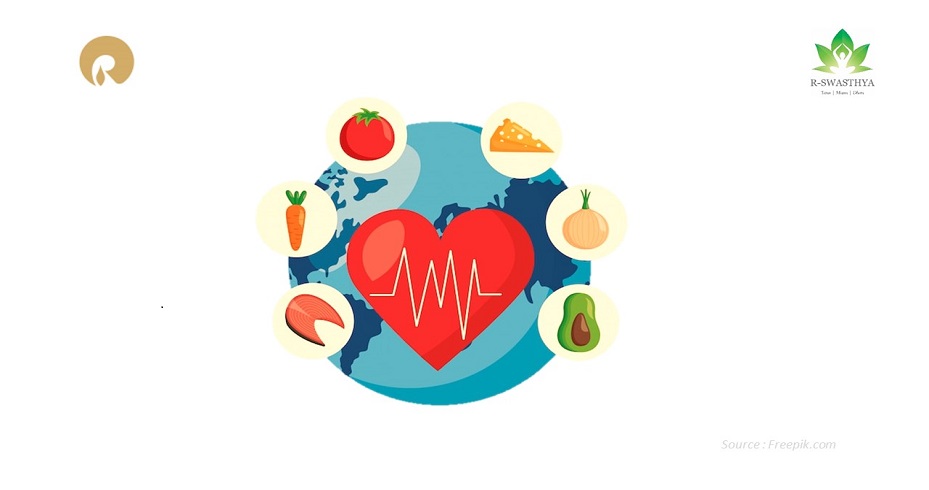World Hypertension Day is celebrated on May 17 each year to raise awareness about hypertension, also known as high blood pressure, and its impact on global health. In this article know more about lifestyle factors associated with hypertension and nutrition for prevention and management of high blood pressure.
Hypertension is a leading cause of cardiovascular diseases, including heart attacks, strokes, and kidney problems. It affects millions of people worldwide, yet it often goes undiagnosed or untreated. Global statistics on hypertension highlight the urgent need for increased awareness, prevention, and effective management of hypertension at a global level to reduce its impact on public health and improve overall well-being.
- High Prevalence: Hypertension affects a substantial portion of the global population. According to the World Health Organization (WHO), approximately 1.13 billion people worldwide had hypertension in 2015.
- Increasing Trend: The prevalence of hypertension is on the rise. It is estimated that by 2025, around 1.56 billion adults, or 29% of the global population, will have hypertension.
- Low Awareness and Control: Many individuals with hypertension are unaware of their condition or do not have it adequately controlled. The WHO states that only about 46% of people with hypertension are aware of their condition, and among those aware, only 14% have their blood pressure under control.
- Global Burden of Disease: Hypertension is a major contributor to the global burden of disease. It is a leading risk factor for cardiovascular diseases such as heart attacks and strokes. Around 7.5 million deaths per year, or 13% of all deaths globally, are attributed to hypertension.
- Economic Impact: Hypertension poses a significant economic burden on healthcare systems and societies. The WHO estimates that the economic costs associated with hypertension and its complications account for 10% of the global healthcare expenditure.
Lifestyle factors associated with hypertension
Lifestyle factors play a significant role in the development and worsening of high blood pressure.
- Diet: Unhealthy eating habits, such as a diet high in sodium (salt), saturated and trans fats, and low in fruits, vegetables, and whole grains, contribute to hypertension. Excessive sodium intake can increase fluid retention and raise blood pressure.
- Physical Inactivity: Lack of regular physical activity is a risk factor for hypertension.
- Obesity: Being overweight or obese significantly increases the risk of hypertension. Excess body weight puts additional strain on the heart and blood vessels, leading to elevated blood pressure.
- Alcohol Consumption: Excessive alcohol consumption can raise blood pressure.
- Smoking: Smoking tobacco and exposure to secondhand smoke contribute to high blood pressure and increase the risk of heart disease.
- Stress: Chronic stress can contribute to hypertension too.
- Caffeine Intake: While the relationship between caffeine and blood pressure is complex and varies among individuals, excessive caffeine intake may temporarily raise blood pressure.
Nutrition for prevention and management of high blood pressure
A well-balanced and nutrient-dense diet can significantly reduce the risk of developing hypertension and effectively manage blood pressure. Here we discuss crucial nutrients and dietary approach involved in the process.
- Sodium and Potassium
High sodium intake is strongly associated with hypertension. Excessive sodium disrupts the balance of electrolytes in the body, leading to fluid retention and increased blood pressure. The Dietary Approaches to Stop Hypertension (DASH) diet emphasizes reducing sodium intake and increasing potassium-rich foods. Potassium helps regulate blood pressure by counteracting the effects of sodium. Foods such as fruits, vegetables, legumes, and low-fat dairy products are excellent sources of potassium and should be included in a hypertension-friendly diet.
- Plant-Based Diets
Plant-based diets, such as the Mediterranean and DASH diets, have been extensively studied for their beneficial effects on blood pressure. These diets emphasize consuming whole grains, fruits, vegetables, legumes, nuts, and seeds while limiting processed foods, red meat, and saturated fats. The abundance of nutrients, including fiber, antioxidants, and phytochemicals, in plant-based diets contribute to lower blood pressure levels and reduce the risk of hypertension.
- Micronutrients
Several micronutrients, such as magnesium, calcium, and vitamin D, have been linked to blood pressure regulation. Magnesium-rich foods, such as green leafy vegetables, nuts, and whole grains, have been associated with lower blood pressure. Similarly, calcium from dietary sources, including low-fat dairy products and fortified alternatives, may have a modest blood pressure-lowering effect. Adequate vitamin D levels, obtained through sunlight exposure and dietary sources like fatty fish and fortified foods, are also crucial for maintaining optimal blood pressure.
- Dietary Patterns and Weight Management
Obesity is a significant risk factor for hypertension. Therefore, achieving and maintaining a healthy weight is vital in blood pressure management. Diets that promote weight loss, such as low-calorie diets, should be individualized and include a balance of macronutrients. Long-term weight management can be supported by incorporating strategies like portion control, mindful eating, and regular physical activity.
- Lifestyle Factors and Behavioral Changes
In addition to dietary modifications, other lifestyle factors can influence blood pressure. Limiting alcohol consumption, quitting smoking, reducing stress levels through relaxation techniques, and engaging in regular physical activity are essential components of a comprehensive approach to hypertension prevention and management.
Nutrition plays a central role in the prevention and management of hypertension. Additionally, adopting a healthy lifestyle, including weight management, regular physical activity, stress reduction, and avoiding harmful habits, complements the positive effects of nutrition. Most importantly, the key to detecting the disease early and preventing deadly consequences is equipping individuals with scientific knowledge about the disease itself.

